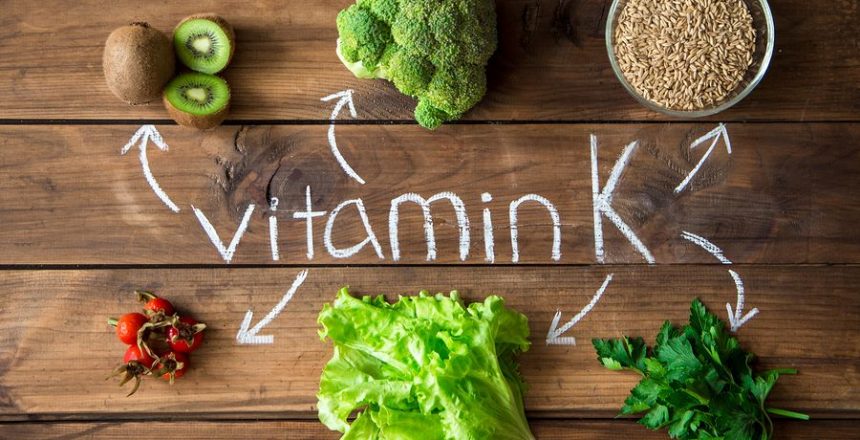Introduction
Vitamin K2, also known as menaquinone, is a lesser-known but essential fat-soluble vitamin that plays a vital role in various physiological processes. Unlike its counterpart, vitamin K1 (phylloquinone), which is primarily involved in blood clotting, vitamin K2 is involved in calcium metabolism and has several other significant health benefits. In this comprehensive guide, we will explore the numerous benefits of vitamin K2, including its role in bone health, heart health, and dental health, as well as its potential anti-inflammatory and anti-cancer properties.
Bone Health and Calcium Metabolism
One of the primary benefits of vitamin K2 is its role in bone health and calcium metabolism. Vitamin K2 activates a protein called osteocalcin, which is responsible for binding calcium to the bone matrix. This process ensures that calcium is deposited in the bones, making them stronger and more resilient.
Without sufficient vitamin K2, calcium may accumulate in the arteries and soft tissues, leading to a condition known as arterial calcification. This condition can increase the risk of cardiovascular diseases and negatively impact overall bone health.
Vitamin K2 supplementation has been associated with improved bone mineral density and reduced risk of fractures, especially in postmenopausal women and older adults. Incorporating vitamin K2-rich foods or supplements can be beneficial for maintaining strong and healthy bones.
Heart Health and Arterial Health
Vitamin K2’s role in calcium metabolism extends beyond bone health to support cardiovascular health. By helping to prevent arterial calcification, vitamin K2 contributes to the maintenance of healthy blood vessels and optimal blood flow.
Arterial calcification is a process where calcium deposits build up in the arterial walls, reducing their elasticity and increasing the risk of atherosclerosis, heart attacks, and strokes. Vitamin K2 helps to prevent and reverse this process, potentially reducing the risk of cardiovascular diseases.
Studies have shown that individuals with higher vitamin K2 intake have a lower risk of coronary artery calcification and overall cardiovascular mortality. Including vitamin K2-rich foods in the diet or considering supplementation may benefit heart health and reduce the risk of cardiovascular events.
Dental Health and Oral Hygiene
Vitamin K2 has been associated with improved dental health and oral hygiene. Activated osteocalcin, a protein influenced by vitamin K2, not only plays a role in bone health but also supports the structure of teeth.
Research suggests that vitamin K2 may contribute to stronger tooth enamel and reduce the risk of dental cavities. Additionally, vitamin K2 may help prevent periodontal disease by supporting the health and integrity of gum tissues.
While dental health is influenced by several factors, ensuring adequate vitamin K2 intake, along with good oral hygiene practices, can contribute to healthier teeth and gums.
Potential Anti-Inflammatory Properties
Inflammation is a natural response of the body to infection or injury. However, chronic inflammation can contribute to various chronic diseases, including heart disease, diabetes, and cancer.
Vitamin K2 has been studied for its potential anti-inflammatory properties. Some studies suggest that vitamin K2 may help reduce the production of inflammatory markers and support a balanced immune response.
By regulating inflammation, vitamin K2 may play a role in reducing the risk of inflammatory-related diseases and improving overall health.
Potential Anti-Cancer Properties
Emerging research suggests that vitamin K2 may possess anti-cancer properties. Some studies have indicated that vitamin K2 may help inhibit the growth and proliferation of cancer cells.
Although more research is needed to fully understand the mechanisms behind vitamin K2’s potential anti-cancer effects, preliminary findings show promise in its role as a complementary approach to cancer prevention and treatment.
Potential Benefits for Brain Health
Research on the relationship between vitamin K2 and brain health is still in its early stages. However, some studies suggest that vitamin K2 may play a role in supporting cognitive function and reducing the risk of neurodegenerative diseases.
Vitamin K2’s involvement in calcium metabolism and its impact on arterial health may contribute to improved blood flow to the brain, supporting cognitive function and brain health.
Blood Sugar Regulation
Some studies have indicated a potential link between vitamin K2 and improved blood sugar regulation. Vitamin K2 may help enhance insulin sensitivity, making cells more responsive to insulin’s actions and potentially reducing the risk of insulin resistance and type 2 diabetes.
However, more research is needed to establish a definitive relationship between vitamin K2 and blood sugar regulation.
Sources of Vitamin K2
Vitamin K2 is found in both animal-based and plant-based foods. The primary form of vitamin K2 found in animal products is MK-4 (menatetrenone), while MK-7 (menaquinone-7) is the most common form found in fermented foods and supplements.
Sources of Vitamin K2 include
Fermented Foods
- Natto: A traditional Japanese dish made from fermented soybeans, which is a particularly rich source of MK-7.
- Fermented Cheeses: Certain cheeses, such as Gouda and Brie, contain moderate levels of vitamin K2.
Animal-Based Foods
- Organ Meats: Liver and other organ meats are good sources of vitamin K2.
- Egg Yolks: Egg yolks from pasture-raised chickens contain vitamin K2.
- Meat: Grass-fed meats may contain small amounts of vitamin K2.
Plant-Based Foods
Certain fermented vegetables: Sauerkraut and kimchi may contain trace amounts of vitamin K2.
Supplements
Vitamin K2 supplements are also available, usually in the form of MK-4 or MK-7. These supplements can be beneficial, especially for individuals with dietary restrictions or limited access to vitamin K2-rich foods.
Recommended Daily Intake
The Recommended Dietary Allowance (RDA) for vitamin K is set based on the combined intake of both vitamin K1 and vitamin K2. It is expressed in micrograms (mcg) of phylloquinone (K1) equivalents (K1E).
- Infants (0-6 months): 2.0 mcg/day
- Infants (7-12 months): 2.5 mcg/day
- Children (1-3 years): 30 mcg/day
- Children (4-8 years): 55 mcg/day
- Children (9-13 years): 60 mcg/day (boys) / 55 mcg/day (girls)
- Adolescents (14-18 years): 75 mcg/day (boys) / 60 mcg/day (girls)
- Adults (19 years and older): 120 mcg/day (men) / 90 mcg/day (women)
- Pregnant and breastfeeding women have slightly higher RDAs, as follows:
- Pregnant women: 90 mcg/day
- Breastfeeding women: 90 mcg/day
It is essential to meet the recommended daily intake of vitamin K2, along with other nutrients, for optimal health and well-being.
Conclusion
Vitamin K2 is a lesser-known but vital nutrient that supports various aspects of health, including bone health, heart health, and dental health. Its role in calcium metabolism and arterial health contributes to overall well-being and reduces the risk of chronic diseases.
By incorporating vitamin K2-rich foods into the diet or considering supplementation, individuals can reap the many benefits of this essential nutrient. As research on vitamin K2 continues to expand, we can expect to uncover even more potential health benefits and applications for this important vitamin. As always, it’s essential to consult with a healthcare professional before making significant changes to your diet or supplement regimen.
I am deeply convinced that each patient needs a unique, individual approach. Therefore, I use different psychotherapy methods in my work. During my studies, I discovered an in-depth interest in people as a whole and the belief in the inseparability of mind and body, and the importance of emotional health in physical health. In my spare time, I enjoy reading (a big fan of thrillers) and going on hikes.
[email protected]
- Benefits of CBD Edibles - August 5, 2023
- Benefits of K2 - July 28, 2023
- Benefits of THC-H TINCTURE - July 27, 2023




